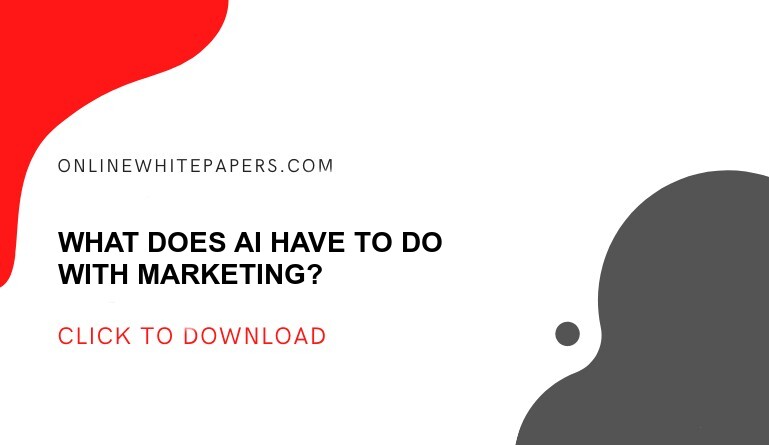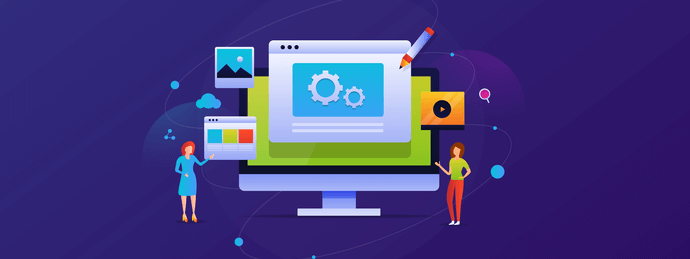Your success is no longer solely determined by product or price – a satisfying customer experience is a must. When it comes to customer experience (CX), artificial intelligence (AI) is your most effective weapon.
AI is being used by more and more companies to improve customer service and meet the needs of modern consumers.
What does AI in Customer Experience Mean?
AI customer experience is a wide view of how artificial intelligence can enhance customer experiences. AI CX automates all the small interactions that make up the user experience. It does so with technologies such as machine learning (ML), deep learning, and natural language understanding (NLU).
How AI CX Works
Using an AI-powered chatbot is one way AI enhances customer experience. You can use AI chatbots on messaging platforms such as WeChat and Facebook Messenger, via email, and on voice assistants such as Alexa and Google Assistant.
The main advantages of AI customer support chatbots are reducing wait times, automating mundane tasks so agents have more time to address complex issues, and helping customer service reps work more efficiently. Customer loyalty increases and customer service costs are reduced.
How AI Improves Customer Experience
With artificial intelligence, you can increase customer engagement, encourage brand loyalty, and enhance retention. Though it cannot replace human beings, it can increase efficiency and take low-hanging fruit off your customer service team’s plate-like answering frequently asked questions.
Besides integrating AI with machine learning, deep learning, and natural language understanding, AI can also be used to automate customer interactions by removing communication barriers.
Among the more familiar examples of AI are chatbots that can converse with customers and recommend products based on customer behavior data. AI has virtually limitless potential.
5 Ways to Use AI to Enhance Customer Experiences
1. Reduce employee burnout
The technology of AI never sleeps, never takes a break, and never gets sick. It can easily learn new skills and achieve high levels of productivity and performance.
This isn’t an argument for replacing employees, but rather illustrating how artificial intelligence can ensure your employees won’t feel overworked and burnt out. Put your team’s efforts into tasks that call for human touch and people skills. Let technology handle the rest.
2. Friendly and efficient service
The customer wants fast, efficient, and friendly service, and this cannot be ignored by businesses. Artificial intelligence chatbots meet this need efficiently and continuously.
Also, chatbots tend to have fewer errors, making it easier for customers to get the information they need as they need it. Information can be provided based on customers’ needs and can be analyzed better over time. As customer support must be responsive, consistent, and focused, it can be a game-changer.
3. Increases lead generation
Making the buying process pain-free is crucial when customers are ready to purchase – and AI-powered chatbots can help. This can be accomplished by using pre-programmed questions to validate leads before they are passed on to sales agents.
As part of the sale, chatbots can also suggest products based on browsing history, and can even upsell after the sale.
4. Automating life assistance
We usually use Alexa to play music or dim the lights. However, more and more companies are using Alexa, Google Home, and another robot AI to make life easier for customers.
Customers can schedule transfers and bill payments by using Alexa and Google Home, for example. They can also order products using voice commands.
5. Provides better product recommendations
To provide the best product recommendations, AI-led recommendations combine data with information. It is possible to increase sales by collecting information such as website search queries, purchase behavior, and more. Through these recommendations, the best product attributes can be identified.
Final Thoughts
Every step of the buyer’s journey can be improved through artificial intelligence. It offers endless ways to improve your company’s CX by helping you understand who your customers are, what they like and dislike, and how they shop.
AI seems to be here to stay, with brands investing so heavily in it. No matter who provides a bad customer experience, consumers won’t tolerate it. Offloading tasks to bots is only worthwhile if it improves customer experience.













